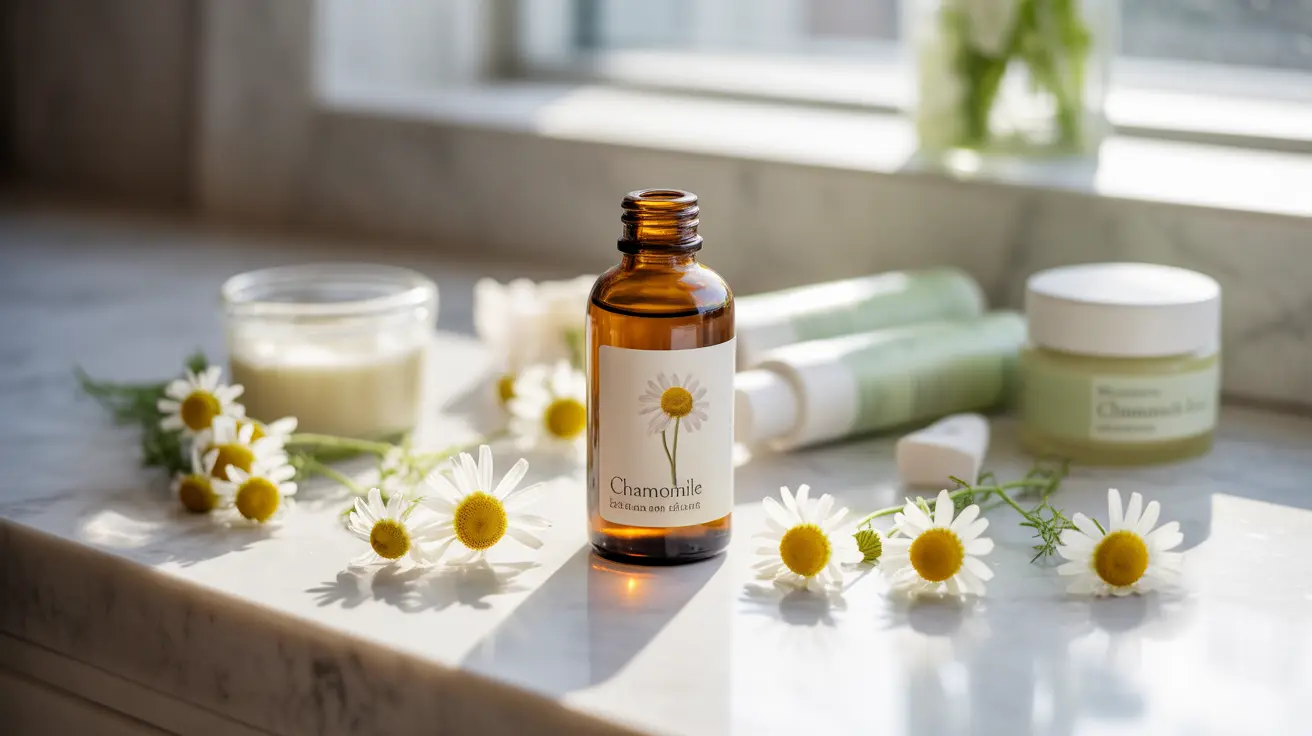Chamomile oil has emerged as a powerful natural ingredient in skincare, offering numerous benefits for various skin conditions and concerns. This gentle yet effective botanical extract has been used for centuries in traditional medicine and modern skincare formulations, thanks to its impressive anti-inflammatory, antimicrobial, and healing properties.
Understanding how to properly use chamomile oil for skin care can help you harness its full potential while ensuring safe application. Let's explore the various benefits, applications, and best practices for incorporating this natural remedy into your skincare routine.
The Science Behind Chamomile Oil's Skin Benefits
Chamomile oil contains several active compounds that contribute to its skin-healing properties. The primary components include alpha-bisabolol, chamazulene, and flavonoids, which work together to provide anti-inflammatory, antioxidant, and soothing effects on the skin.
These natural compounds help protect the skin from environmental damage while promoting cellular repair and regeneration. The oil's gentle nature makes it particularly suitable for those with sensitive or reactive skin types.
Key Benefits for Different Skin Conditions
Calming Inflammation and Redness
Chamomile oil's anti-inflammatory properties make it particularly effective at reducing skin redness and irritation. The natural compounds help calm inflamed skin and provide relief from various inflammatory skin conditions.
Supporting Skin Barrier Function
Regular use of chamomile oil can help strengthen the skin's natural barrier function, improving its ability to retain moisture and protect against environmental stressors. This makes it an excellent choice for those with dry or compromised skin.
Anti-Aging Properties
The antioxidant content in chamomile oil helps fight free radical damage, which can contribute to premature aging. Regular application may help reduce the appearance of fine lines and support overall skin health.
Safe Application Methods
Dilution Guidelines
While chamomile oil is generally gentle, it's important to properly dilute it before application. Mix a few drops with a carrier oil such as jojoba or sweet almond oil for safe use on the skin. A typical dilution ratio is 2-3 drops of chamomile oil per tablespoon of carrier oil.
Integration into Skincare Routine
Chamomile oil can be incorporated into your skincare routine in several ways:
- Add to your regular moisturizer
- Use in a facial oil blend
- Include in a weekly face mask
- Apply as part of your nighttime routine
Precautions and Best Practices
Before using chamomile oil on your skin, consider these important safety measures:
- Always perform a patch test before full application
- Use only high-quality, pure chamomile oil
- Avoid using if you have known allergies to plants in the daisy family
- Store in a cool, dark place to maintain potency
Frequently Asked Questions
1. What are the main benefits of using chamomile oil for skin care? Chamomile oil offers anti-inflammatory, antimicrobial, and healing benefits for the skin. It helps calm irritation, reduce redness, support barrier function, and provide antioxidant protection against environmental damage.
2. How does chamomile oil help with acne and eczema? Chamomile oil's anti-inflammatory and antimicrobial properties help reduce acne inflammation and fight bacteria. For eczema, it helps soothe irritation, reduce itching, and support skin barrier repair.
3. Can chamomile oil be used directly on sensitive or irritated skin? No, chamomile oil should always be diluted with a carrier oil before application, even on sensitive skin. While it's generally gentle, proper dilution ensures safe and effective use.
4. Are there any side effects or allergic reactions associated with chamomile oil on the skin? Some people, especially those allergic to plants in the daisy family, may experience allergic reactions. Common symptoms include redness, itching, or rash. Always perform a patch test before full application.
5. How can chamomile oil be incorporated into a daily skincare routine for anti-aging and hydration? Add a few drops to your regular moisturizer or facial oil, use it in a nightly treatment blend, or create a weekly treatment mask. Consistent use as part of a comprehensive skincare routine will help maximize its anti-aging and hydrating benefits.




